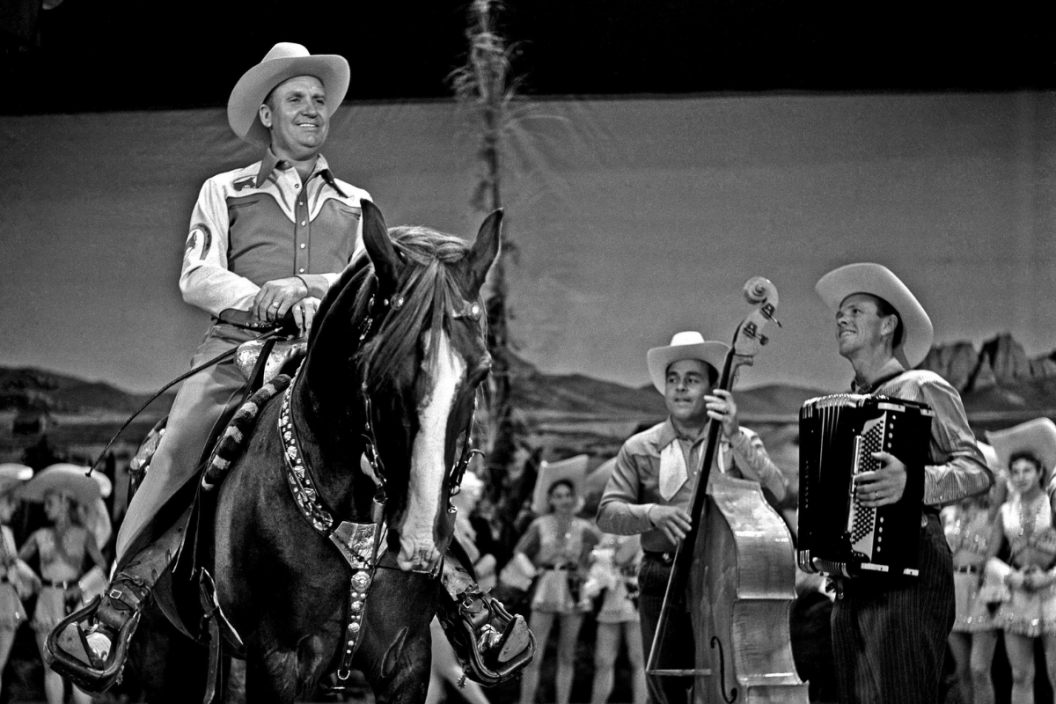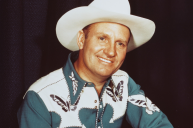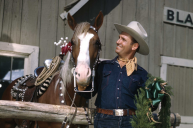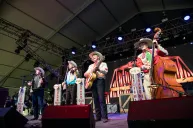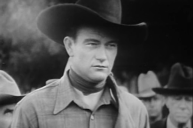The nostalgic time of the singing cowboy transports you right back to the '30s and '40s when cowboy films were full of western heroes who would break out into song. It's been decades since the craze made its way through Hollywood, but the concept of a 'singing cowboy' has become a myth in itself. Men like Gene Autry and Tex Ritter will forever be remembered for their singing cowboy days, but they were definitely not the only ones. How exactly did the phenomenon start? Who were some of the biggest cowboys at the time?
Videos by Wide Open Country
Where did the singing cowboy come from?
When real cowboys worked long hours out on cattle drives or in the vast pastures of ranches, their main form of entertainment was singing songs and telling folk stories. In 1907, a man named John Lomax was working on his graduate degree at Harvard and needed to study literature from a specific area. He decided to choose cowboy songs and traveled all over, collecting tunes from the trails and in response to his ads in the paper. His final product was a book titled "Songs of the Cowboy and other Frontier Ballads," which created a fascination with cowboy culture, particularly their music.
Hollywood noticed the buzz surrounding cowboy music and decided to run with it. Not only were many people able to relate to the content in a cowboy song, but it applied to folks who worked other challenging jobs that required long hours of solitude. Needless to say, the idea was an immediate hit due to the music and the general interest in the Old West at the time. What is a singing cowboy exactly? Essentially, just that. A western hero who sings the plights of the working cowboy while starring in his own film. Many of these men also had successful music careers as a result and together created a phenomenon that ruled Hollywood for roughly two decades.
One of the early singing cowboys was actually John Wayne. Before he found his place in the dramatic westerns of John Ford, he starred in Riders of Destiny in 1933, followed by additional films until his contract expired in 1935. Though the roles had helped boost his career, he had no interest in continuing down that road, and he couldn't sing. The studio looked for a replacement and decided they wanted someone with actual singing skills to follow Wayne, and they found Gene Autry, who literally became known as 'The Singing Cowboy."
Here's a closer look at Autry and more legendary singing cowboys at the peak of their fame.
Gene Autry
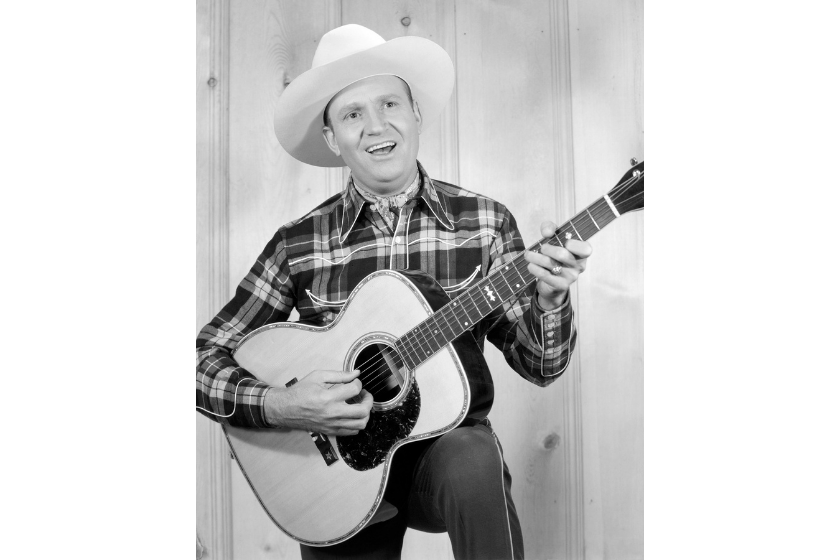
Photo by Silver Screen Collection/Getty Images
When most people think of a singing cowboy, Gene Autry is probably one of the first names that come to mind. While other western actors at the time experimented with the singing fad and moved on (John Wayne and Clint Eastwood), some, like Autry, made an entire career of it. He was actually a former rodeo performer who landed the gig because he was the only actor who could sing and ride a horse. Initially, he needed some help with his acting but he became one of the biggest western stars of all time. From successful films to radio performances, Autry was an American icon, even hosting his own television series in the '50s.
Tex Ritter
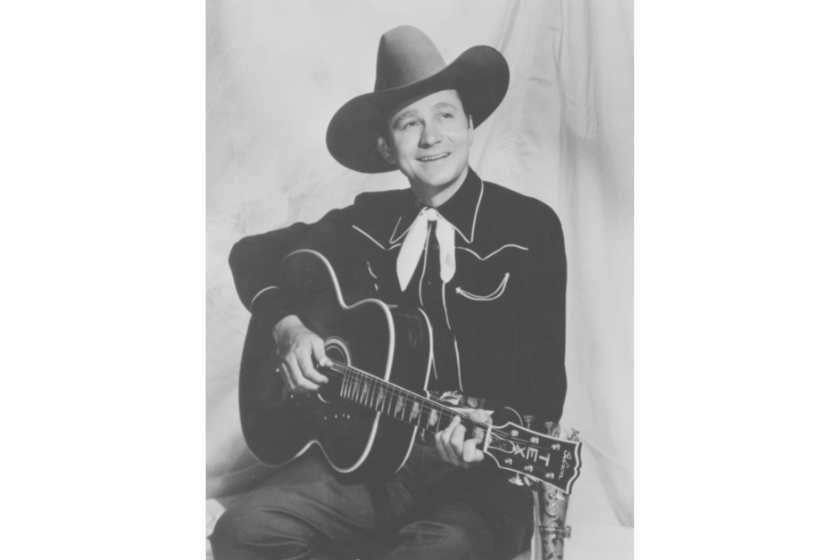
Photo by FPG/Getty Images
Once Hollywood saw the success of the 'singing cowboy,' everyone scrambled to sign on one of their own. Tex Ritter made a series of popular films starting with Song of the Gringo in 1936. In addition to his many B-western films, Ritter also performed the theme track for the Gary Cooper film High Noon which earned an Oscar for Best Song. He had one of the most successful music careers of any of the cowboys on this list, fondly remembered in the Country Music Hall of Fame. He's also the father of the late TV actor John Ritter.
Rex Allen
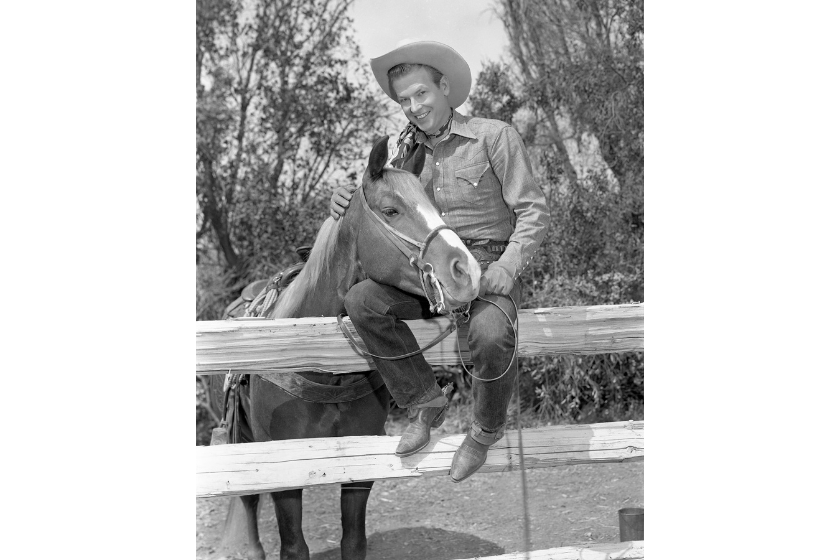
Photo by Silver Screen Collection/Getty Images
Known as "the Arizona Cowboy," Rex Allen was signed on to become a cowboy in the '50s, long after the fad had been popularized by the likes of Autry and Ritter. His films showed him as a clean-cut cowboy of the west with his white Stetson and trusty horse companion. He was also depicted as going on adventures with his quirky sidekicks, who ranged from future Beverly Hillbillies star Buddy Ebsen to Slim Pickens. Outside of his successful film and music career, Allen worked with Disney as the narrator of their western and nature programs.
Roy Rogers
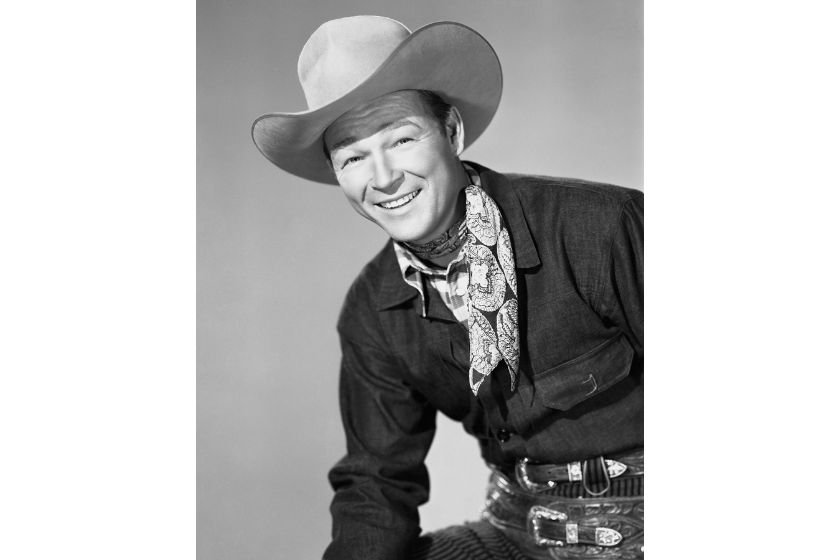
Photo by Silver Screen Collection/Getty Images
When Gene Autry had issues with his studio contract, they needed a quick replacement after he walked. They chose Roy Rogers, co-founder of the singing group Sons of the Pioneers, who at that point had only had a few supporting roles in western films. He went on to rival Autry as one of the biggest singing cowboys of the day, earning the nickname "King of the Cowboys." He starred in many of his films with his wife, Dale Evans, who became an equally popular singing cowgirl.
Ken Maynard
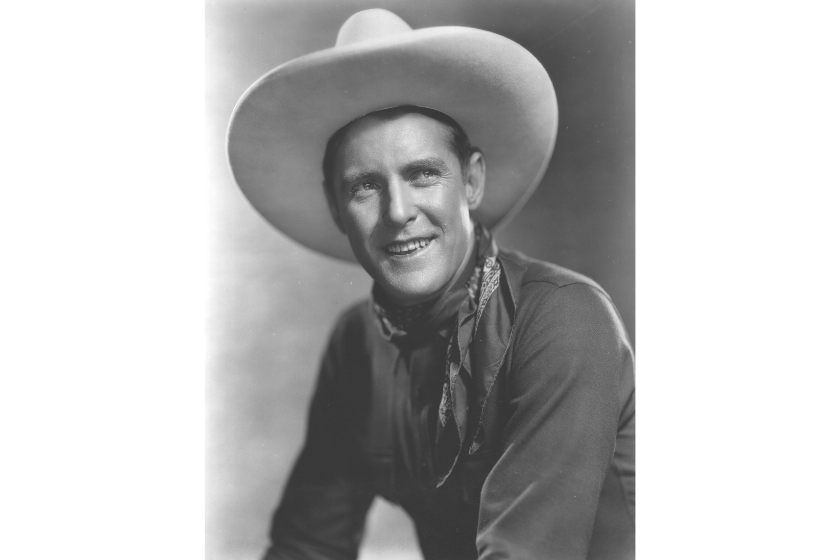
Photo by Hulton Archive/Getty Images
Ken Maynard worked in the rodeo as a young man and even appeared in Buffalo Bill's Wild West Show, so he was meant to become a western movie star. He got his start in silent films of the 1920s, where his riding skills and ability to execute difficult stunts made him a western star. Once talking pictures came around, he made his debut as the very first singing cowboy in the film Sons of the Saddle.
Dick Foran
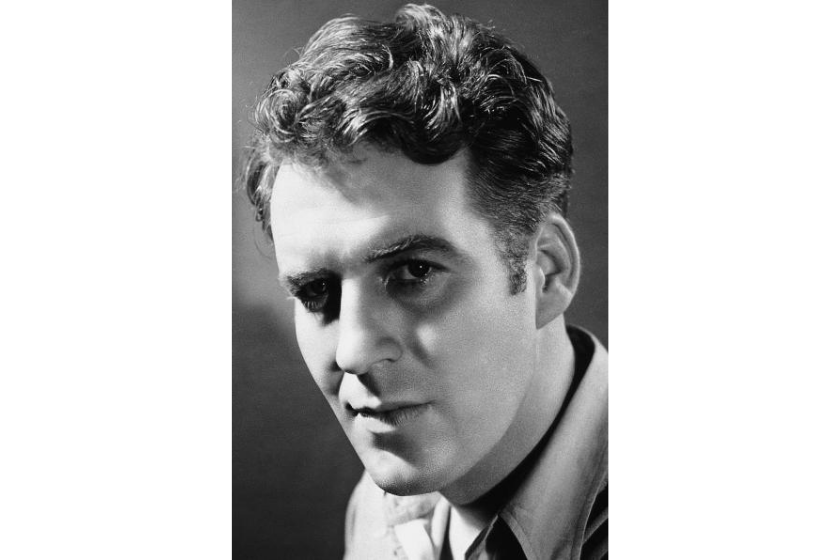
Public Domain/Wikipedia
In the mid-1930s, Dick Foran hit it big, filming a series of singing cowboy films for Warner Bros. His popular series Moonlight on the Prairie and Song of the Saddle made him a star and showed off not only his singing chops but his horsemanship skills as he rode his own horse for filming.
Bob Steele
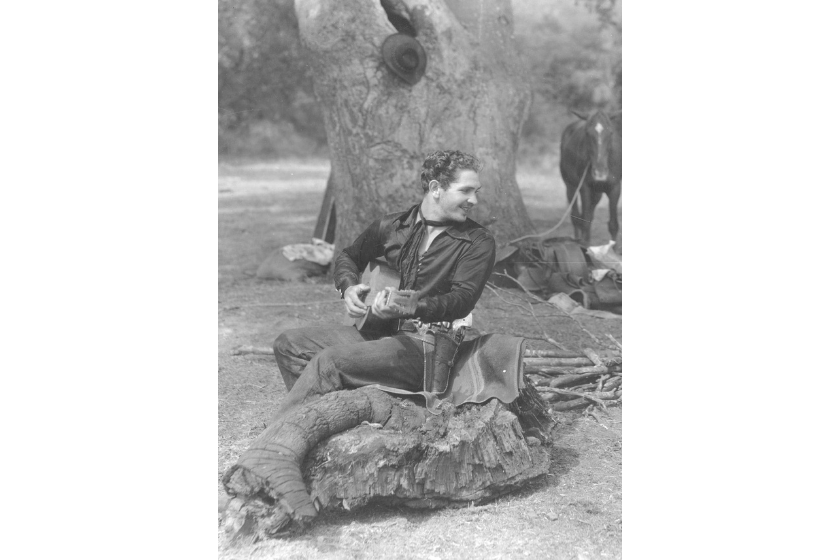
Photo by Hulton Archive/Getty Images
In the early days of the singing cowboy, Bob Steele appeared in films for nearly every studio at the time. His resume is full of B-westerns through the early '40s. He ended up transitioning away from musical roles and landed supporting parts in more A-list projects like John Wayne's Rio Bravo.
Bob Baker
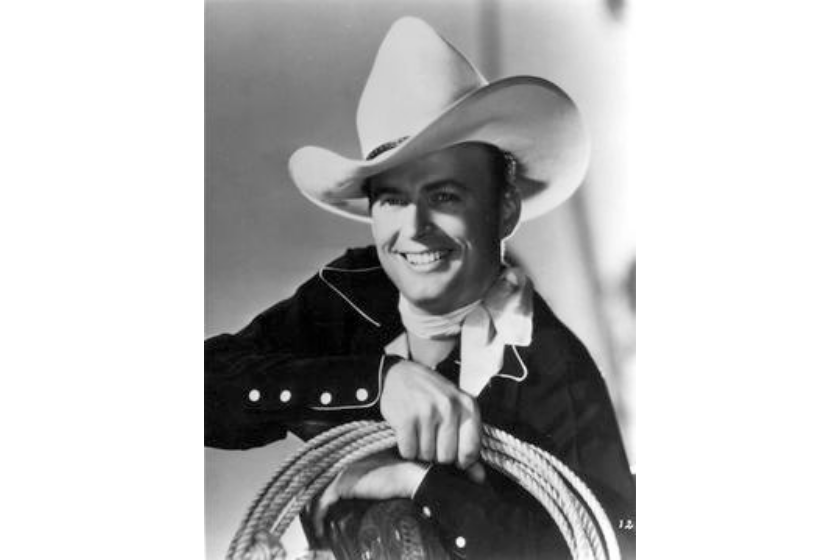
Universal Studios/Wikipedia
Bob Baker got his start working in the rodeo and singing for local radio stations. Along with his trusty horse Apache, he starred in a slew of his own films as well as some alongside Johnny Mack Brown. Despite his success in the 1930s, Baker transitioned to working merely in stunts in 1940s films before leaving Hollywood entirely to serve in the Army in World War II.
Herb Jeffries
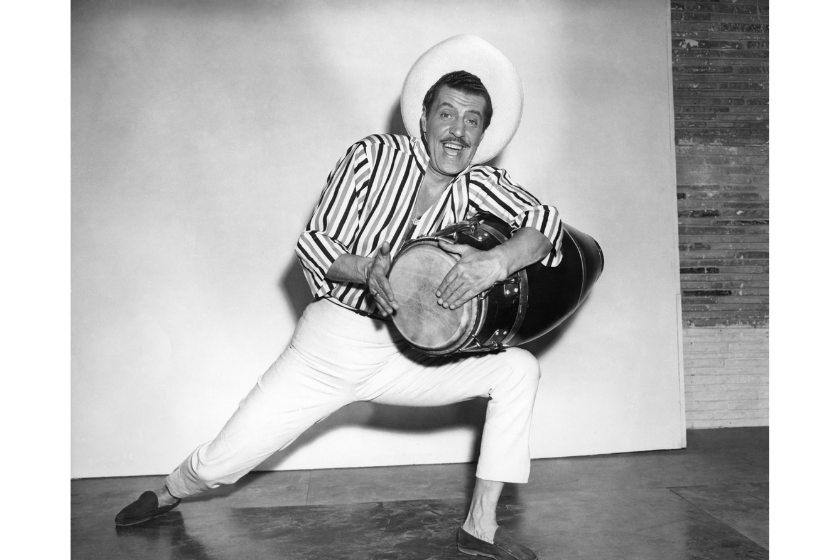
Photo by Michael Ochs Archives/Getty Images
Starting with Harlem on the Prairie in 1937, Herb Jeffries and his horse Starbuck made a splash in Hollywood. Born Umberto Valentino, Jeffries earned himself the nickname "Herbert Jeffries, Sensational Singing Cowboy."
James Newill
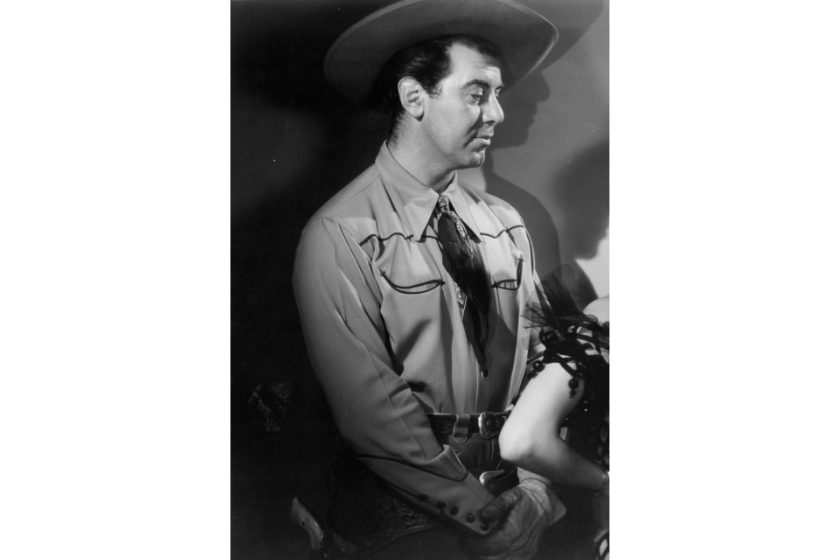
Photo by PRC Pictures/Getty Images
In the late '30s, James Newell was known for appearing in a series of Texas Ranger singing cowboy films and memorably playing a singing Mountie in Renfrew of the Royal Mounted.
READ MORE: Young John Wayne Starred (But Didn't Sing) in Singing Cowboy Movies
